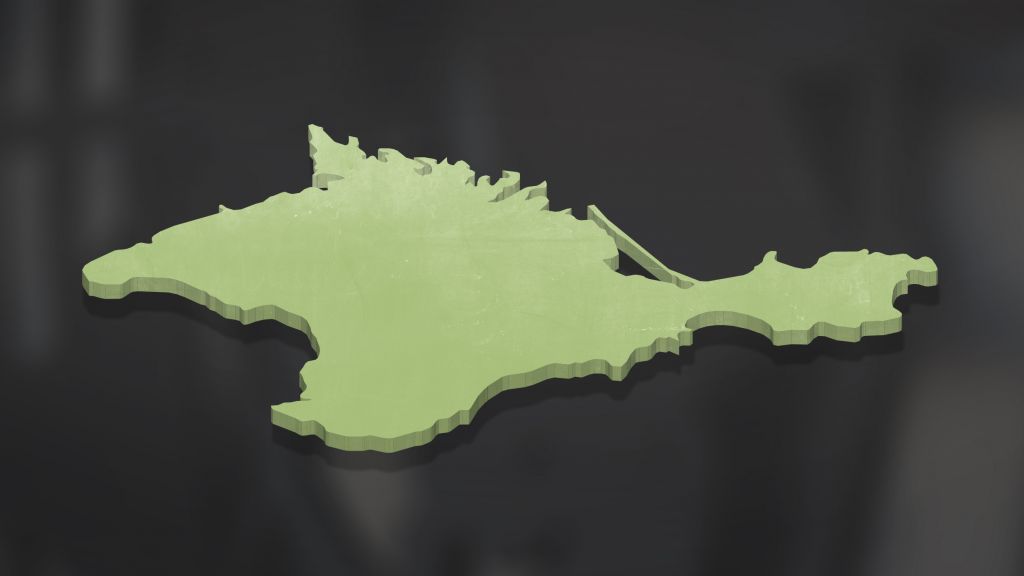Human rights defenders are “suffering gravely,” said the UN Deputy High Commissioner for Human Rights.
Human Rights House Foundation (HRHF), in its statement on Ukraine at the Human Rights Council, said: “The de facto authorities continue a crackdown against human rights defenders, lawyers and journalists,” and these authorities are “party to a range of human rights violations, including on freedom of association and assembly.”
HRHF welcomed the recent report on human rights in Crimea by the UN monitoring mission to Ukraine, pointing to the scarcity of such information due the de facto authorities’ efforts to “limit the spread of information about human rights violations,” by among other things “targeting those monitoring the situation and reporting about it to the outside world.”
To emphasise the significance, this was the first UN report to be published focused specifically on human rights in Crimea, since the UN monitoring mission was deployed to Ukraine in March 2014.
The report documents violations of freedoms of association and assembly, and fair trial rights and due process guarantees, as well as torture, ill-treatment, enforced disappearances, arbitrary arrests, and detentions. It also highlights the arbitrary implementation of Russian Federation criminal law provisions designed to fight terrorism, extremism and separatism, stating that they have “restricted the right to liberty and security of the person and the space for the enjoyment of fundamental freedoms.”
Such charges have hit Crimean Tatars particularly hard. Their parliament, the Mejlis, has been banned and its members imprisoned on such charges, and lawyers representing them have been targeted.
UN High Commissioner for Human Rights Zeid Ra’ad Al Hussein stressed that it was critical for Russia to uphold human rights for all in Crimea and meet its obligations as an occupying power. “The judiciary has failed to uphold the rule of law and exercise proper administration of justice. There is an urgent need for accountability for human rights violations and abuses and for providing the victims with redress,” he said.
Indeed, Ukrainian organisations reporting on Crimea have since the occupation chronicled widespread human rights violations and called it the Peninsula of Fear. With Human Rights House Foundation, they have briefed the international community and urged action on the distressing human rights situation.
Florian Irminger, Head of Advocacy at HRHF, commented: “This official report focusing on Crimea adds weight to the evidence of human rights violations in Crimea, as reported in recent years by civil society organisations, lawyers, and journalists. The international community must respond strongly, demonstrating a firm commitment to address the situation.”
Access to the Peninsula remains a major issue, and the UN monitoring mission to Ukraine has still not been granted access to enter the Peninsula.
HRHF said in its statement: “There is no improvement [on human rights in Crimea], and the veil of opacity surrounding Crimea is worsening the situation.”
Florian Irminger continued: “A first step to address this situation should be the effective implementation of the recommendations contained in the report of the UN monitoring mission, by the de facto authorities in Crimea and the government of the Russian Federation. The international community must urge this implementation and continue to push for access for human rights monitors to the Peninsula.”
—
HRHF and its civil society partners will continue to raise awareness of human rights violations and call for action on Crimea.
We recently carried out training with Crimean and mainland Ukrainian civil society organisations (27-29 September), building their capacity to submit reports as part of the UN Universal Periodic Review process. This is ahead of the deadline to submit reports for Russia’s UPR on 5 October.
At the UN General Assembly in New York, we continue to advocate for a strong human rights resolution on Crimea. This will remain a priority in the coming months.
—
Newsletter
This article was first published as part of the September newsletter of the Human Rights Houses and HRHF.
Sign up to receive news and insight into human rights issues and country situations, the projects and activities of Human Rights Houses, and portraits and interviews with human rights defenders.
Documents:
- HRHF statement on Ukraine and Crimea, delivered at HRC36
HRHF welcomed the report on human rights in Crimea by the UN monitoring mission to Ukraine, and the weight it adds to reports of violations by civil society organisations, lawyers and journalists.
It called for the implementation of the report’s recommendations.HRHF also addressed the Ukrainian authorities, relating to draft legislation concerning NGOs operating on the Ukrainian mainland.
- Draft laws burden Ukrainian NGOs
- Civil society should not be targeted by measures impeding its independence
- Free Media Award: Crimea and Azerbaijan focus among Fritt Ord winners
- Crimea: The rule of Kremlin prevails over the rule of law
- UN resolution on Crimea: Crimeans deserve better
- Educational Human Rights Fest
De facto authorities in Crimea
On 27 March 2014, the United Nations General Assembly adopted resolution 68/262 affirming Ukraine’s territorial integrity. It underlined that the 16 March 2014 referendum in Crimea that led to the peninsula’s annexation by the Russian Federation has “no validity” and that the parties should “pursue immediately a peaceful resolution of the situation.”
Since the annexation, the human rights situation has seriously deteriorated. The Russian Federation has imposed its laws and justice system on the controlled area, and imposed new authorities on Crimea who have conducted a severe crackdown on civil society and perceived political opponents.
More on Ukraine





